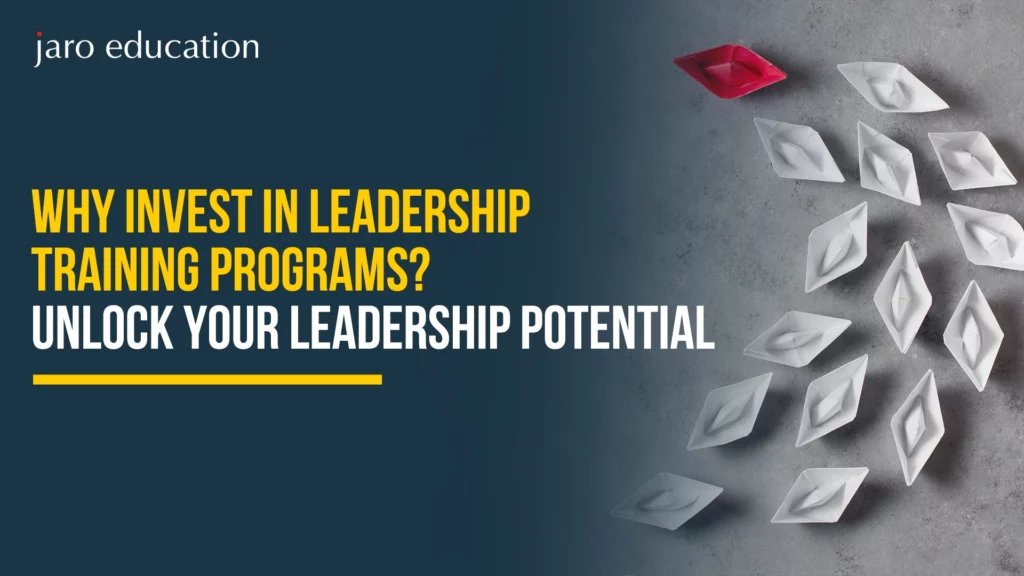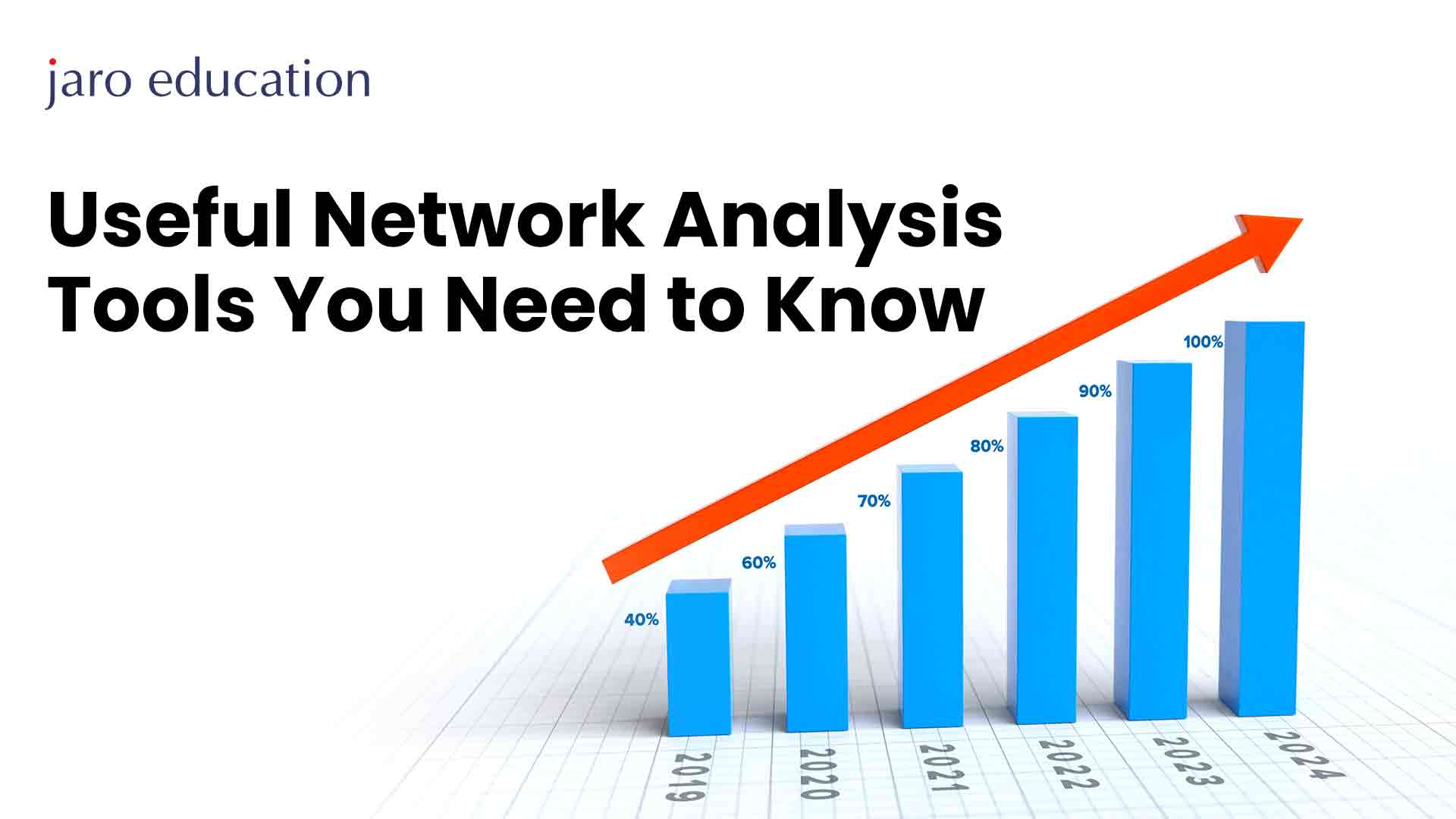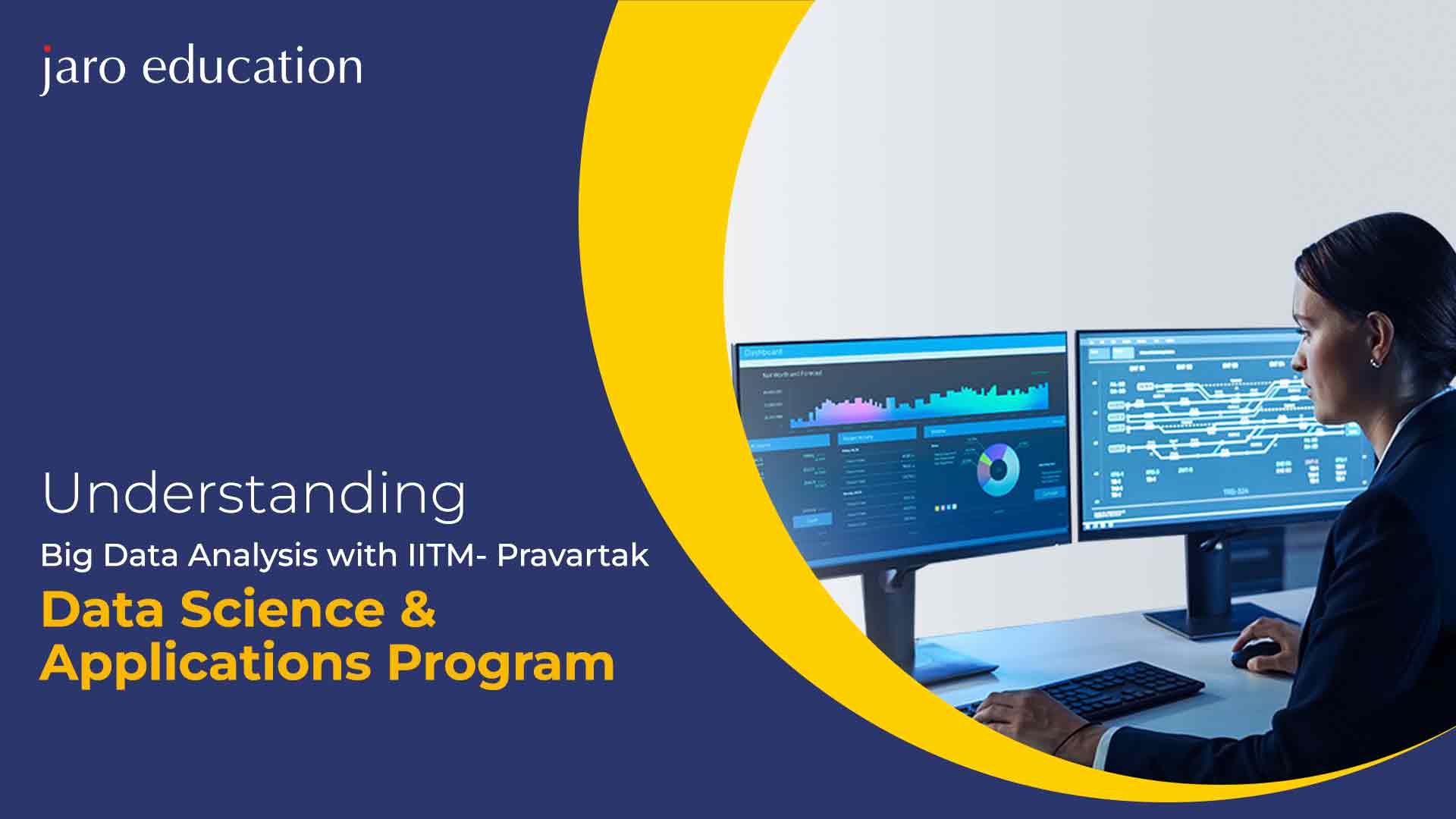IIM Mumbai’s Executive MBA Simplified: All You Need to Know About CAT, GMAT & GRE Requirements
Table of Contents
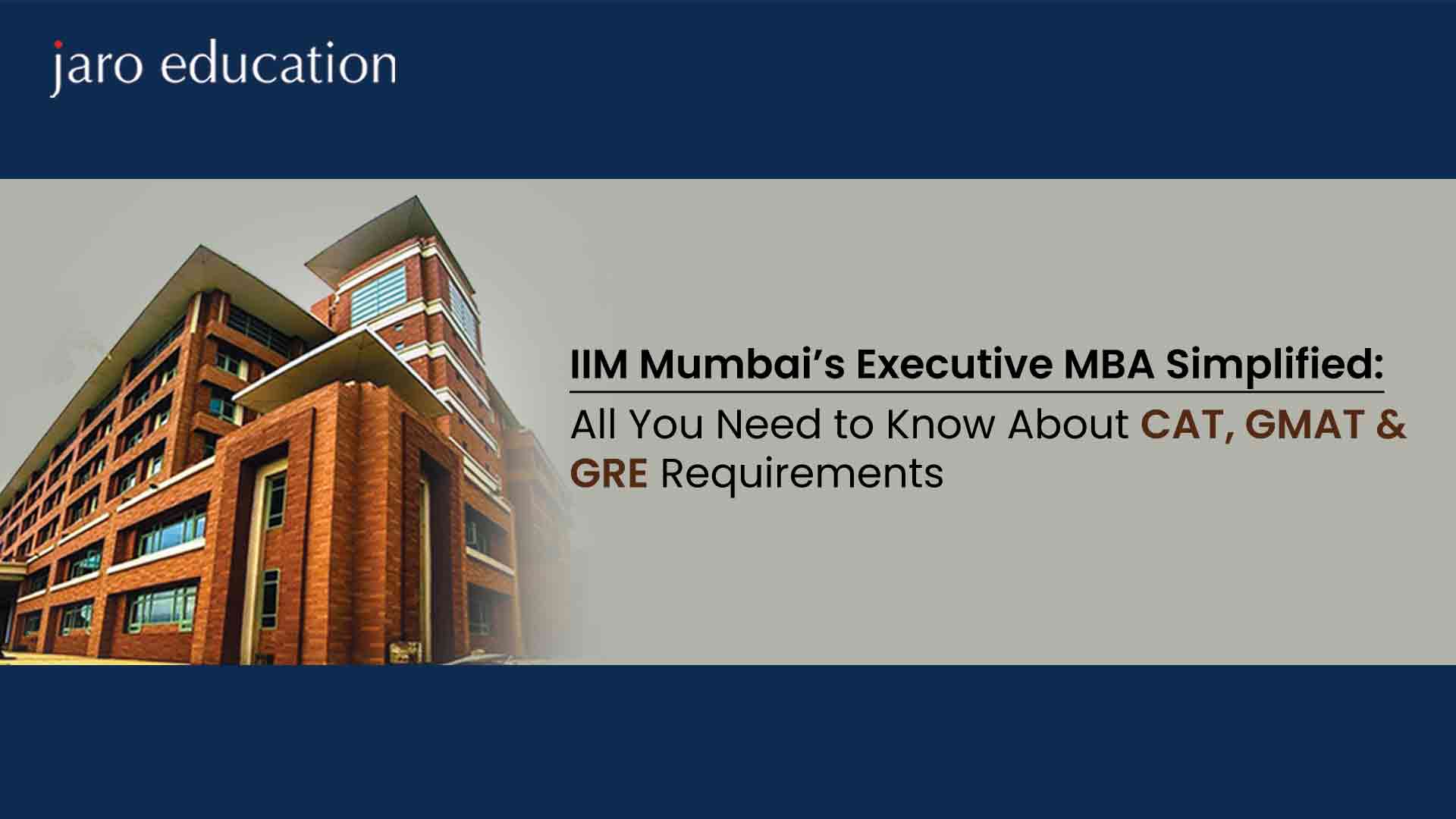
- jaro education
- 12, November 2024
- 12:00 pm
An Executive MBA (EMBA) is a prestigious graduate-level program tailored specifically for professionals who have substantial work experience and are looking to enhance their leadership and management skills. Unlike the traditional MBA, which generally targets candidates earlier in their careers, the Executive MBA is designed for mid to senior-level professionals who want to accelerate their career growth without interrupting their ongoing professional commitments.
The IIM Mumbai Executive MBA program is one of the premier options in India, providing top-tier education and flexible learning opportunities for ambitious professionals. This blog will explore everything you need to know about the IIM Mumbai Executive MBA, including its eligibility requirements, the entrance exams you need to consider, and the unique aspects that make it an attractive choice for working professionals.
What is an Executive MBA?
An Executive MBA is designed to help working professionals gain an in-depth understanding of business management while applying their real-world experience. EMBA programs focus on providing high-level education that emphasizes leadership, decision-making, strategic thinking, and management skills.
While the traditional MBA programs are generally suited for younger professionals with less work experience, the EMBA caters to individuals who have already established themselves in their careers and are now seeking to upskill in order to move into executive or leadership roles.
The IIM Mumbai Executive MBA offers this opportunity with the added advantage of online learning combined with periodic on-campus immersion, making it a unique offering for those who require the flexibility to study while continuing their professional journey.
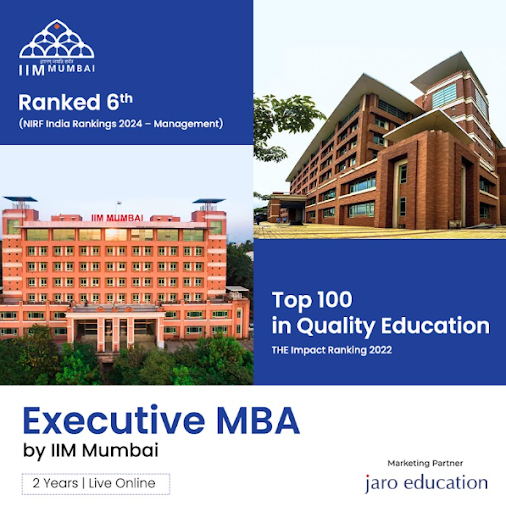
Eligibility Criteria for the IIM Mumbai Executive MBA Program
Before you consider which entrance exam to take, it’s important to understand the eligibility criteria for admission to the IIM Mumbai Executive MBA program. The Executive MBA eligibility requirements are designed to ensure that applicants have a solid educational foundation, relevant professional experience, and the intellectual capability to handle the demands of a top-tier business education.
| Criteria | Requirement |
|---|---|
| Educational Qualification | A Bachelor’s degree with at least 50% marks or equivalent CGPA (45% for SC/ST/PwD categories). |
| Work Experience | A minimum of three years of relevant work experience after completing the undergraduate degree. |
| Entrance Exam | Candidates must have taken one of the following exams: CAT, GMAT, GRE, or the IMAT (IIM Mumbai Admission Test). |
These Executive MBA eligibility criteria ensure that candidates have the right academic background and work experience to excel in the demanding environment of an Executive MBA program.
Entrance Exams: CAT, GMAT, GRE, and IMAT
The IIM Mumbai Executive MBA program provides flexibility in terms of the entrance exams required for admission. You do not need to take all of them; however, you must have appeared for at least one of these exams within the last five years to qualify for admission. Additionally, the IIM Mumbai Admission Test (IMAT) provides an alternative option for those who have not taken the other exams.
1. CAT (Common Admission Test)
The CAT exam is the most widely recognized entrance exam in India for admission to top business schools, including the Indian Institutes of Management (IIMs). It is an aptitude test that measures a candidate’s logical reasoning, quantitative ability, and verbal proficiency. For IIM Mumbai, the CAT exam is the preferred choice for applicants, as it is the standard for Indian business schools. The CAT exam syllabus is often considered essential when preparing for any competitive exam required for admission to the country’s top B-schools.
| Section | Focus Areas |
|---|---|
| Quantitative Ability | Mathematical problem-solving skills |
| Verbal Ability | Reading comprehension, English grammar |
| Logical Reasoning | Analytical reasoning and data interpretation |
The CAT exam is conducted once a year, and the IIM Mumbai Executive MBA accepts scores from the last five years, which gives applicants ample time to plan their preparation. The exam is highly competitive, and excelling in it can significantly enhance your chances of admission.
2. GMAT (Graduate Management Admission Test)
The GMAT exam is a globally recognized examination primarily used by international business schools for MBA admissions. It tests a candidate’s analytical writing, quantitative reasoning, and verbal reasoning abilities. The GMAT exam is often preferred by applicants who are considering studying abroad or pursuing a career in multinational corporations. Given the importance of the GRE/GMAT internationally, the GMAT exam fees are often higher, and the GMAT syllabus and GMAT courses tend to be comprehensive.
| Section | Focus Areas |
|---|---|
| Analytical Writing | Writing clear, concise, and structured arguments |
| Integrated Reasoning | Interpreting data and solving complex problems |
| Quantitative Reasoning | Mathematical problem-solving |
| Verbal Reasoning | Sentence correction, reading comprehension |
For candidates seeking an international perspective or aiming to prove their readiness for business studies on a global scale, the GMAT is an excellent option. Many students applying to the IIM Mumbai Executive MBA program opt for this exam.
3. GRE (Graduate Record Examinations)
The GRE is another international entrance exam accepted by IIM Mumbai for the Executive MBA program. Traditionally used for admission to graduate programs, it has increasingly been accepted by business schools, including IIMs, as an alternative to the GMAT.
| Section | Focus Areas |
|---|---|
| Verbal Reasoning | Critical reading, sentence completion |
| Quantitative Reasoning | Arithmetic, algebra, data analysis |
| Analytical Writing | Writing essays to evaluate logical reasoning |
The GRE allows for a broader application scope, as it is not limited to business schools alone, making it a popular choice for applicants seeking flexibility in graduate school admissions.
4. IMAT (IIM Mumbai Admission Test)
For candidates who have not taken the CAT, GMAT, or GRE, the IMAT is a great option. The IMAT follows a similar structure to the CAT, focusing on quantitative ability, logical reasoning, and verbal ability.
| Section | Focus Areas |
|---|---|
| Quantitative Ability | Mathematical and logical problem-solving |
| Logical Reasoning | Analytical reasoning and data interpretation |
| Verbal Ability | Reading comprehension, sentence completion |
The IMAT is an internal exam offered by IIM Mumbai to assess the aptitude of candidates applying to its Executive MBA program. It provides an opportunity for individuals who might not have taken other entrance exams to prove their readiness for the rigorous program.
Do You Need to Take All These Exams?
No, candidates are required to take only one of the above exams to qualify for admission to the IIM Mumbai Executive MBA program. You can choose the exam that best suits your background, experience, and career goals. Below is a summary of the entrance exams available to IIM Mumbai applicants:
| Exam | Preferred For |
|---|---|
| CAT | Indian applicants aiming for IIM Mumbai |
| GMAT | International applicants and those looking for global exposure |
| GRE | Applicants seeking an alternative to GMAT |
| IMAT | Those who have not taken CAT, GMAT, or GRE |
This flexibility allows candidates to choose the path that best suits their personal preferences or previous test-taking experiences.
The Structure of the Executive MBA Program
Fees for IIM Mumbai Executive MBA
-
- Application Fee: ₹2,500 (non-refundable)
- Program Fee: ₹15,00,000
Why Choose the Executive MBA at IIM Mumbai?
- Global Recognition: IIM Mumbai is widely regarded as one of the top business schools in India. The Executive MBA program offered by IIM Mumbai is recognized internationally and provides students with a competitive edge in the global job market.
- Industry-Relevant Curriculum: The curriculum is updated regularly to reflect the latest business trends, ensuring that students learn the most relevant and up-to-date material.
- Practical Learning: The program focuses heavily on case studies, projects, and real-world applications, allowing students to gain hands-on experience while still learning theory.
- Networking Opportunities: Graduates of the IIM Mumbai Executive MBA program become part of a prestigious alumni network that provides career advancement opportunities and a community of professionals across industries.
- Flexible Learning Format: The online Executive MBA, combined with on-campus immersion sessions, allows students to continue working while completing their degree.
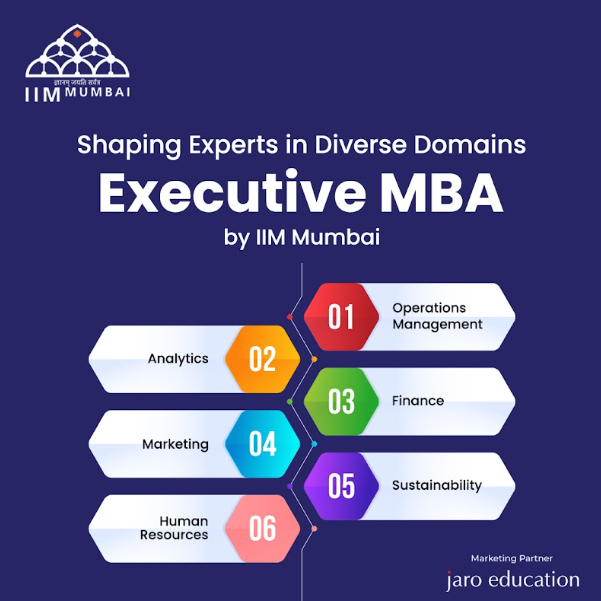
The Role of Jaro Education in the Executive MBA Program
Jaro Education partners with IIM Mumbai to provide marketing support and technological infrastructure for the online Executive MBA program. Through this collaboration, Jaro offers a platform for online learning, career counseling, and personalized support for applicants, helping them navigate the admission process and enhance their learning experience.
Jaro Education’s role as a marketing and tech partner also means that students have access to cutting-edge learning tools, ensuring a smooth and engaging educational experience.
Conclusion
The IIM Mumbai Executive MBA program is designed for experienced professionals looking to take their careers to the next level. Whether you opt for the CAT, GMAT, GRE, or IMAT, the program offers flexibility and advanced business training to meet the needs of busy professionals. With IIM Mumbai’s reputation for excellence, an industry-relevant curriculum, and the support of Jaro Education, the Executive MBA program is a great investment for professionals aiming to accelerate their careers.
Frequently Asked Questions
An Executive MBA (EMBA) and a traditional MBA both lead to a Master of Business Administration degree, but they differ in terms of structure, target audience, and delivery format. A traditional MBA is typically aimed at early-career professionals or recent graduates looking to gain foundational business skills. In contrast, an Executive MBA is specifically designed for mid- to senior-level professionals with substantial work experience who want to advance into higher leadership roles while continuing to work.
Key differences include:
-
- Format: EMBAs are often part-time or modular, allowing professionals to study while working.
- Experience Level: EMBAs require more work experience, often 5–10 years or more.
- Focus: EMBAs emphasize leadership and strategic skills, tailored for executives and managers.
- An Executive MBA enhances a professional’s skills in leadership, strategy, finance, and other high-level business functions. It equips executives with tools to make strategic decisions, lead large teams, and drive organizational growth. Through case studies, hands-on projects, and peer networking, an EMBA helps professionals gain insights into real-world challenges and solutions, preparing them for top-level roles such as CEO, CFO, or other C-suite positions.
- In addition to leadership and strategy, EMBA programs often offer specializations in fields like finance, marketing, and operations, allowing executives to tailor their learning to specific career goals.
- An Executive MBA can be worth it, particularly for those aiming to accelerate their careers, switch industries, or enhance their leadership capabilities. The degree can open doors to higher-paying roles, greater career mobility, and a broader professional network. However, it’s essential to consider the investment in terms of time, money, and energy. For those committed to progressing in their careers, the returns on an EMBA — such as salary increases, promotions, and access to senior-level positions — often justify the costs.
- Whether an EMBA is worth it depends on individual career goals, current experience, and the desire for professional growth.


